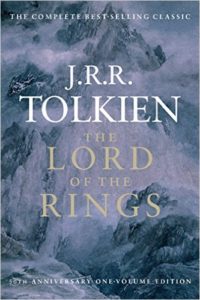What Is It About Fantasy And Christmas?
Something about Christmas stirs in my heart a desire to dive into fantasy. I know atheists would say that Christ’s birth is simply a myth, just like Santa and his elves and all the other Christmas tales, so why wouldn’t I be more inclined toward fantasy during this season?
I reject that notion. I understand the events of Christ’s birth to be real, factual, historical, verified by Dr. Luke’s accurate account. Santa Claus and his North Pole workshop, Rudolph and the other flying reindeer, Frosty the Snowman, the Grinch, talking and singing Gingerbread men—not so real.
So Christmas is both pretend and make-believe, mixed with accurate and true. Consequently, I rule out the idea that this season is all about myth, so why wouldn’t I want to read more pretend.
In fact, “more pretend” would seem like overkill, if that’s what was happening. During a season of all pretend, wouldn’t the logical response be a little more reality to balance it? As it is, Christmas is already well=balanced.
Reading fantasy, then, is clearly not “overkill.” But not just because I believe in the factual accounts of Christ’s birth recorded in the Bible. I also don’t read fantasy simply to enjoy whatever myth the writer is telling.
Of course fantasy is myth, but generally myth points to what is true. It may include an exaggerated rendition of events or a person—like Superman coming to save Metropolis—but in so doing, it points to a real desire in the hearts of people: that a hero, a Savior, will do for us what we can’t do for ourselves.
 Myth may point to the past and explain how things came to be, socially or supernaturally. J. R. R. Tolkein’s Lord of the Ring purports to do just that. And by pointing to the history of Middle Earth, he opens up our thinking about the struggle, the conflict, the heroes, the small people tasked with big missions in the here and now.
Myth may point to the past and explain how things came to be, socially or supernaturally. J. R. R. Tolkein’s Lord of the Ring purports to do just that. And by pointing to the history of Middle Earth, he opens up our thinking about the struggle, the conflict, the heroes, the small people tasked with big missions in the here and now.
Finally, a myth may present the backdrop for a set of beliefs. Hence, the Harry Potter books were much more than stories with cool creatures and fun magic. The author, J. K. Rowling explored sacrifice and death as well as friendships and loyalty within the mythos of a wizarding world.
All those aspects of “myth” point to reality, and perhaps the most important part of their job is to point to the supernatural. After all, “reality” fiction, whether it’s historical or romance or mystery or contemporary, can talk about how real people perceive the supernatural. Only speculative fiction can show the supernatural. Hence the White Witch is more than an evil ruler, and Aslan is more than a talking lion who rules Narnia.

Aslan precedes Father Christmas
Such open-ended stories need to be re-read multiple times. Why did Dumbledore have to die? Or Dobby? Or Cyrus Black? Did Harry die or did something magical actually spare him? What came of Tom Riddle’s attempts to save himself?
These are the kinds of questions that drive me into fantasy yet again. But I confess, there’s more. This is the time of year I most enjoy immersing myself in Middle Earth or Narnia or Hogwarts.
In other words, the worldbuilding is significant. I’ve read a number of books set in a world that felt like medieval earth more than Some Other Place.
Science fiction, particularly space opera, is good at transporting readers to another time, but that doesn’t necessarily translate into another place.
 Fantasy, though, the kind I want to re-read at Christmas, creates a vivid place that I want to live in. Lloyd Alexander made such a place in his Chronicles of Prydain. C. S. Lewis did when he took readers to Perelandra—which he did in his books mislabeled science fiction (they are more science fantasy, I think, but that term wasn’t in use when Lewis wrote those books).
Fantasy, though, the kind I want to re-read at Christmas, creates a vivid place that I want to live in. Lloyd Alexander made such a place in his Chronicles of Prydain. C. S. Lewis did when he took readers to Perelandra—which he did in his books mislabeled science fiction (they are more science fantasy, I think, but that term wasn’t in use when Lewis wrote those books).
So why do I read fantasy at Christmas time? I still can’t really say. I love the reality of it and I love the pretend. I love going to a new world, and I love thinking about timeless truths. In short, fantasy has it all. But then, so does Christmas. So maybe the two just seem like the perfect match.









































